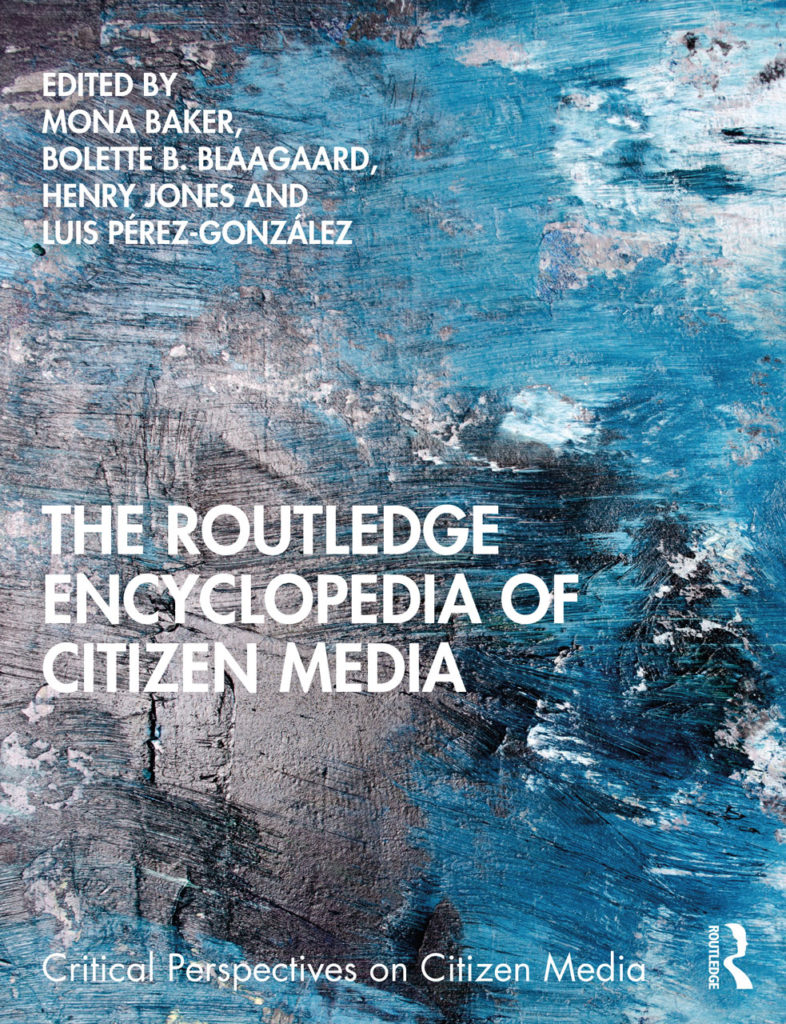A chapter I wrote on “Remediation” has been published in The Routledge Encyclopedia of Citizen Media (Routledge, 2021), edited by Mona Baker, Bolette B. Blaagaard, Henry Jones, and Luis Pérez-González.
Remediation broadly refers to the representation of one medium within another medium, often, in practice, leading to the incorporation of the ‘old’ into the ‘new’. This process can occur in a number of different ways, from the faithful adaptation or translation of a text into another media form, to the improvement, refashioning, absorption or repurposing of content into a more advanced technological state. This can have the effect of causing the medium of consumption to become either more transparent or more opaque, highlighting its relative immediacy or hypermediacy, respectively.
The theory of remediation is important within the sphere of citizen media because non-affiliated citizens are increasingly expressing themselves publicly using remediated content such as remixes, memes, mashups and bricolage. The figure of the independent remixer or meme-artist has become representative of a cultural desire to ‘talk back’ to the media, to politicians and big business, to highlight injustices, expose irresponsible behaviour and engage in various forms of socio-political action, potentially inspiring real change.
This entry considers the role of remediation in citizen media, focusing on a number of relevant examples and case studies from the past decade where newer forms of remix have been used to engage in political discourse or support social action. For example, critical remix video has emerged as an extremely potent form of citizen media production through its remediation of existing source material in order to critically engage with ideological biases and highlight perceived wrongs. The Cambridge Dictionary offers an alternative definition of remediation as “the process of improving or correcting a situation”, which, as this entry shows, is precisely what citizen-engaged remix aims to do.
References
Bolter, Jay David and Richard Grusin (2000) Remediation: Understanding new media, Cambridge: MIT Press.
Deuze, Mark (2006) ‘Participation, Remediation, Bricolage: Considering principal components of a digital culture’, The Information Society 22(2): 63-75.
Jenkins, Henry (2006) Convergence Culture: Where Old and New Media Collide, New York: NYU Press.
Jenkins, Henry et al. (2017) ‘Participatory Politics’, in Eduardo Navas, Owen Gallagher and xtine burrough (eds) Keywords in Remix Studies, New York: Routledge, pp.230-245.
Gallagher, Owen (2018) Reclaiming Critical Remix Video: The Role of Sampling in Transformative Works. New York: Routledge, pp. 131-204.
McLuhan, Marshall (1994) Understanding Media: The extensions of man, Cambridge: MIT Press.
Navas, Eduardo, Owen Gallagher and xtine burrough (2015) ‘Section IV: Politics’, in Eduardo Navas, Owen Gallagher and xtine burrough (eds) The Routledge Companion to Remix Studies, New York: Routledge, pp.321-408.

